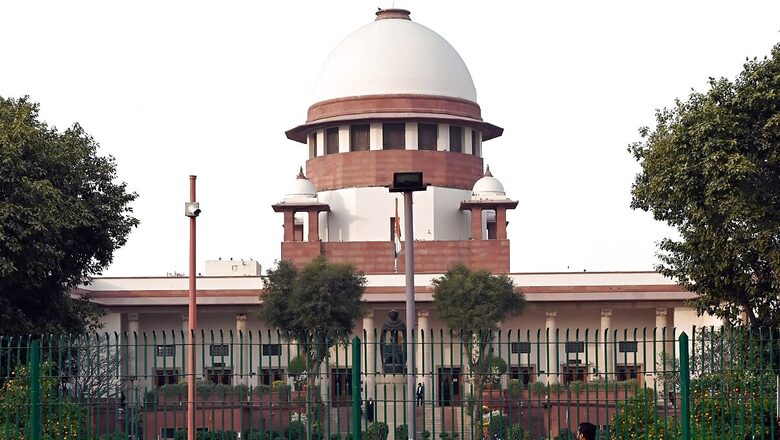
views
As a student of law, there were certain fundamentals that I internalised as non-negotiable features of modern Indian jurisprudence, and indeed, of jurisprudence in all democratic nations. The first is that a person is assumed innocent unless proven guilty. The second is that bail is the rule and jail is the exception. The third is that due process of law will be followed in all prosecution proceedings to eliminate the arbitrary use of state power. The fourth is that no person shall be forced to incriminate himself or herself in a crime. The fifth is that there must be a reasonable nexus between crime and punishment. And, the sixth is that justice delayed is justice denied.
These principles apply to all governments, and are, therefore, beyond the realm of partisan politics. They are in the interests of citizens, to ensure that every person—rich and powerful, or poor and helpless—gets a fair and impartial trial. Very often, people think that somebody else, not them, will be the victim of the infringement of these principles. But the truth is that once infringements become the norm, nobody is safe.
The first two jurisprudential principles enumerated above—a person is presumed innocent unless proven guilty, and bail is the rule and jail the exception—have been upended by the draconian provision of Article 45 of the Prevention of Money Laundering Act (PMLA) 2002, as amended in 2018. This article states that: “Notwithstanding anything contained in the Code of Criminal Procedure 1973, no person accused of a crime (under this Act) shall be released on bail on his own bond unless (i) the Public Prosecutor has been given an opportunity to oppose the application for such release, and (ii) when the Public Prosecutor opposes the application, the court is satisfied that there are reasonable grounds for believing that he is not guilty of such offence.”
In practical terms, what this provision ensures is that bail is almost impossible. The accused has to provide to the court, at the stage of the bail itself, before the case is argued or sometimes even a charge sheet is filed, that he or she is not guilty, while the prosecuting authority can oppose the bail on any grounds based on material whose veracity has not yet been tested through a judicial process. Which judge, therefore, will grant bail on the assumption that even before the trial has begun, the accused is prima facie not guilty?
Money laundering is a serious offence and deserves strong and stringent punishment. The Enforcement Directorate (ED) has an important role to play in identifying and penalising the guilty, but the conviction rate is low, and the ambit of the mandate seems to have been widened to include many other scheduled crimes. Article 45 was struck down by a two-judge Supreme Court (SC) bench of Justice Sanjay Kaul and Justice Rohinton Mistry in March 2022, but was restored a year later by a three-judge SC bench. However, a review petition has been admitted, and in March this year, Justice Sanjiv Khanna observed that bail can be granted under this article if there is a delay in the trial or the period of incarceration is too long. Kerala High Court (HC) judge, Justice Badharudeen also recently said that the reversal of the proof of innocence “is a very dangerous thing”. In 2022, then Chief Justice N.V. Ramanna too, while admitting the review petition, expressed serious concern about this article.
We have to await the results of the review petition, but in the opinion of many eminent jurists, it violates due process of law and creates a situation by which the process itself becomes the punishment.
The violation of the principle of justice delayed is justice denied, is evident by the lakhs of undertrial prisoners languishing in jail for over a year, since their cases have not come up for hearing or disposed of. In 2023, there were 59,78,714 cases pending in the HCs, and 69,598 in the SC. Shockingly, at the same time, against the sanctioned strength of 1114 judges in the HCs, 329 posts were lying vacant. Is it any surprise then that delay in justice is inevitable?
All democracies, irrespective of the government in power, must keep a balance between the powers of the state as against the remedies available to citizens. This balance is critical, because those in power today, may well be in the Opposition tomorrow. CJI DY Chandrachud, while delivering the 20th D.P. Kohli Memorial Lecture in memory of the Central Bureau of Investigation (CBI)’s first director, said a few days ago: “In the realm of criminal justice, the delicate balance between search and seizure powers of agencies like the CBI and individual privacy rights stands at the cornerstone of a fair and just society. At the heart of this balance lies the need to uphold due process while ensuring the effective functioning of law enforcement agencies.”
In India, our ancient systems of jurisprudence had always stressed that nyaya or justice must always conform to niti, correct policy. It is time to restore this equation again.
The author is a former diplomat, an author and a politician. Views expressed in the above piece are personal and solely that of the author. They do not necessarily reflect News18’s views.




















Comments
0 comment